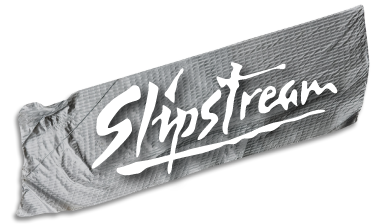Wilderness First Aid is a self-regulating industry; there is no governing body. Slipstream courses are widely recognized by many agencies including, but not limited to, the Association of Canadian Mountain Guides, the Sea Kayak Guides Alliance of BC, Fisheries and Oceans Canada, Natural Resources Canada, Canadian Coast Guard, Parks Canada, and many others.
Slipstream has been in existence since 1990 and regularly teaches courses throughout British Columbia, Alberta, Yukon, Nunavut, the Northwest Territories, and Japan.
Slipstream is a highly regarded Wilderness First Aid training provider throughout Canada and worldwide. Our students come from and work in Australia, New Zealand, Europe, the United Kingdom, the United States of America, the African continent, and Japan, to name a few.
Slipstream instructors have extensive professional experience in the outdoors and the medical/first aid field, including ski patrol supervisors, Emergency Medical Responders, licensed Primary Care Paramedics, ex military medics, WCB Occupational First Aid instructors, remote wilderness field researchers, wildlife photographers, survival specialists, and guides of all flavours.
Slipstream First Aid is a member of the Wilderness Medical Society, the world’s leading organization devoted specifically to wilderness medical challenges. The Wilderness Medical Society sponsors accredited medical education conferences, publishes a peer-reviewed medical journal, a quarterly newsletter and an educational series of lectures. Peer review is a process of evaluation involving qualified people within a relevant field. Peer review methods are used to maintain standards and provide credibility. In academia, peer review is often used to determine an academic paper’s suitability for publication.
The Wilderness Medical Society also convenes a committee of experts to write, peer review, edit, and publish the “Wilderness Medical Society Practice Guidelines”. This publication provides peer-reviewed guidelines to practitioners of wilderness medicine and first aid on a variety wilderness topics such as hypothermia, altitude illness, snake and tick bites, broken bones, and even dental issues that may be encountered in remote environments. Each topic also has a published rating. This rating expresses the confidence that the committee has in the guidelines, as written for that topic, based upon published research. By this rating system, topics which are backed by solid peer reviewed science rate higher than topics in need of further research. This rating system allows the reader, educator, or practitioner to make an educated decision based on the available science when faced with injuries or illnesses in wilderness or remote environments.
This publication, the “Wilderness Medical Society Practice Guidelines”, is the backbone of Slipstream’s Wilderness First Aid curriculum and teaching.

